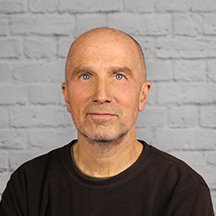Physicians as advocates for social change
Physicians as Advocates for Social Change. Harvard Medical School.
Physicians play a crucial role in advocating for social change to improve health outcomes. Their commitment to helping people and relieving suffering extends to addressing social issues like equity, social justice, human rights, safety, and access to care.
Health outcomes are significantly influenced by social determinants, which include the conditions in which people are born, grow, live, work, and age. These factors account for 80–90% of the modifiable contributors to health, while health care delivery accounts for only 10–20%.
The tradition of advocacy in medicine dates back to figures like Dr. Rudolf Virchow, who identified social factors, such as poverty and political corruption, as root causes of health issues. He believed that medicine must engage in social and political life to fulfill its mission.
The U.S. health care system faces disparities and unaddressed social factors that lead to poor health outcomes for many. Physicians can have a significant impact by addressing these upstream socioeconomic causes of health problems.
The role of physicians in addressing social determinants of health
U.S. health care spending
Despite high per capita spending on health care, the United States has lower-than-average health outcomes compared to other high-income countries. This is attributed to chronic underinvestment in public health, social services, education, physical environments, and access to healthy food.
Physician engagement
Physicians and hospitals in the United States are increasingly recognizing their role in addressing social determinants of health. Many healthcare organizations are partnering with community organizations to improve access to housing, food, transportation, and social services.
Challenges and opportunities
The article discusses the challenges physicians face in addressing social determinants, such as the need for broader social and political changes. However, it also highlights the potential for physicians to make a difference through advocacy and proactive interventions.
Physician leadership role
Incorporating an assessment tool for SDoH into patient care is an important step. Screening for SDoH can improve overall health by addressing factors that influence a patient’s access to medical care and treatment.
The article highlights the Quadruple Aim approach, which focuses on:
- Cost reduction.
- Improvement of the patient experience.
- Health outcomes.
- Physician satisfaction.
Addressing SDOH is essential to achieving these goals.
Source: Social Determinants of Health: Family Physicians’s Leadership Role. AAFP.
Launched by the American Academy of Family Physicians in 2018, this toolkit provides clinicians with resources to advance health equity. It includes tools for:
- Implementing SDOH screening.
- Creating a practice culture of health equity.
- Helping patients access community services.
Family physicians are encouraged to take a proactive approach in addressing vulnerabilities and barriers identified through SDOH screening, and to implement timely referral and follow-up.
Take action on the social determinants of health in clinical practice: A framework for health professionals
Many health professionals feel overwhelmed by the social and economic challenges their patients face. They often avoid addressing these issues, focusing instead on medical treatment and lifestyle counseling.
The article introduces the CLEAR (Clinical, Leadership, Education, Advocacy, and Research) toolkit, a clinical decision aid designed to help health professionals address SDoH in their practice. The toolkit provides practical steps and resources for integrating SDoH into clinical care.
The framework outlines specific actions that clinicians can take to address SDoH, such as:
- Screening for social needs.
- Connecting patients with community resources.
- Advocating for policy changes that improve social conditions.
Training health professionals to address SDoH is essential for promoting health equity. The article highlights the need for medical schools and health organizations to incorporate SDoH training into their curricula and professional development programs.
The CLEAR toolkit is being piloted and tested in various settings worldwide, including low- and middle-income countries and underserved communities in high-income countries. This demonstrates its adaptability and potential for widespread impact.


